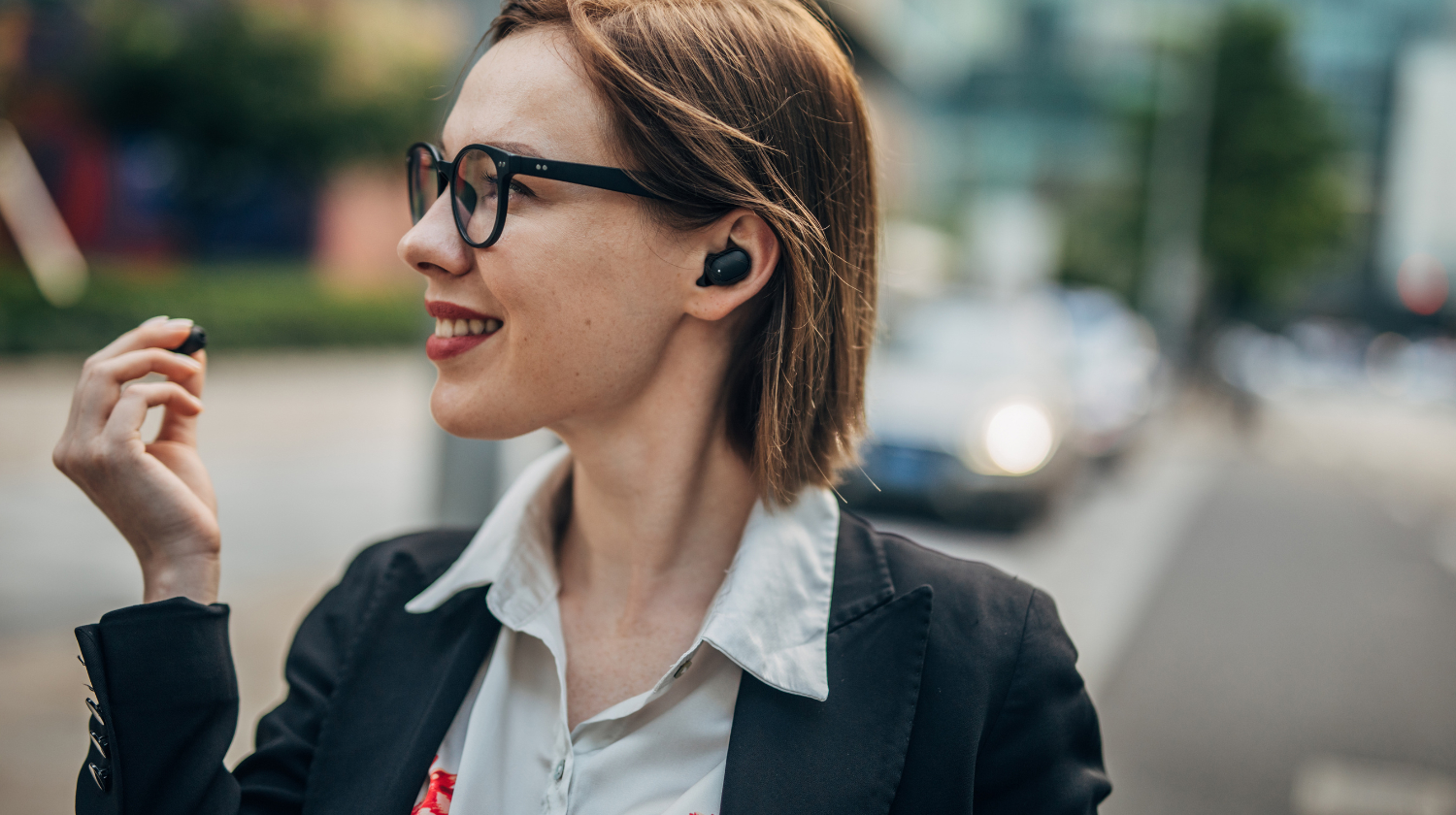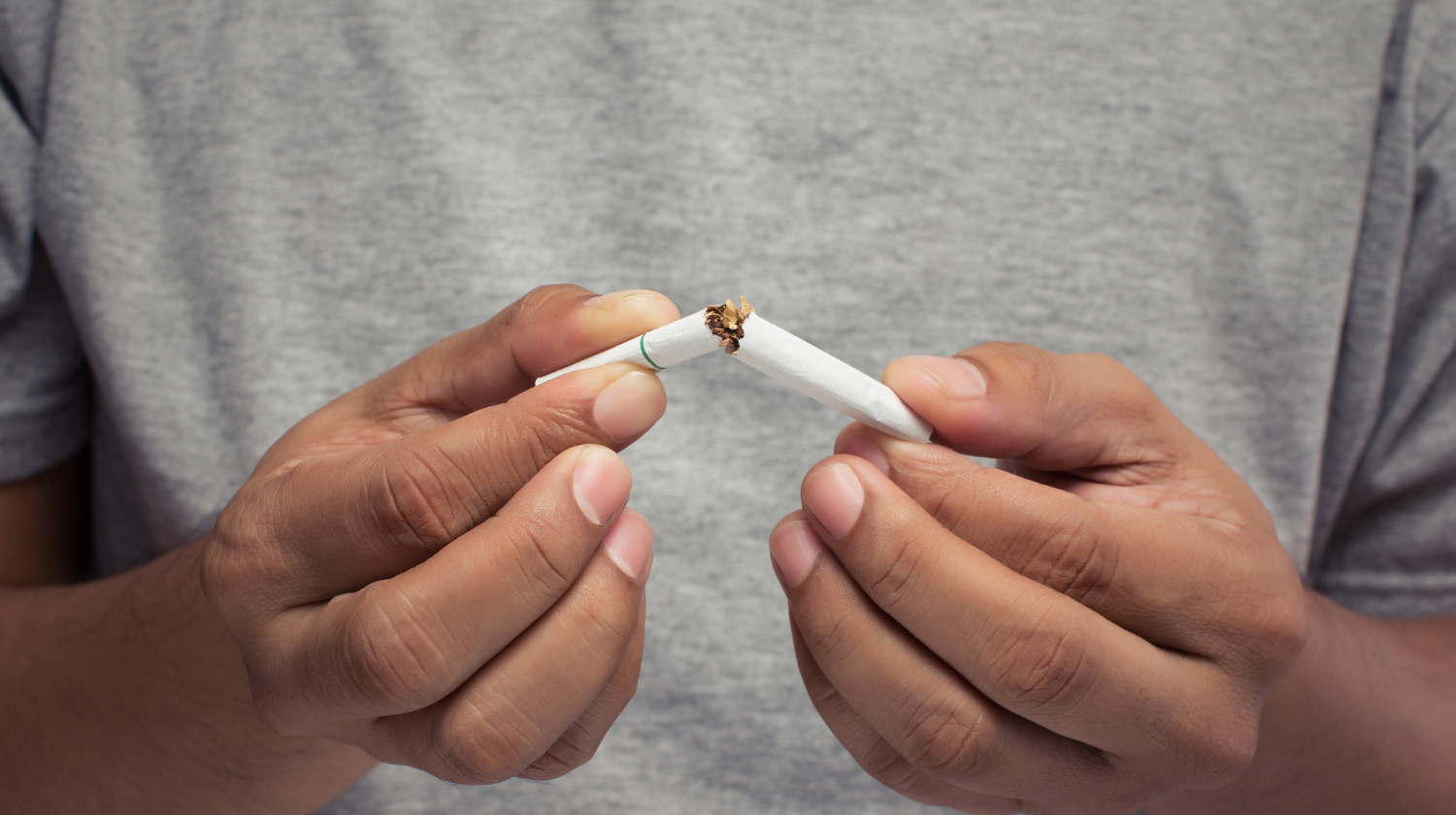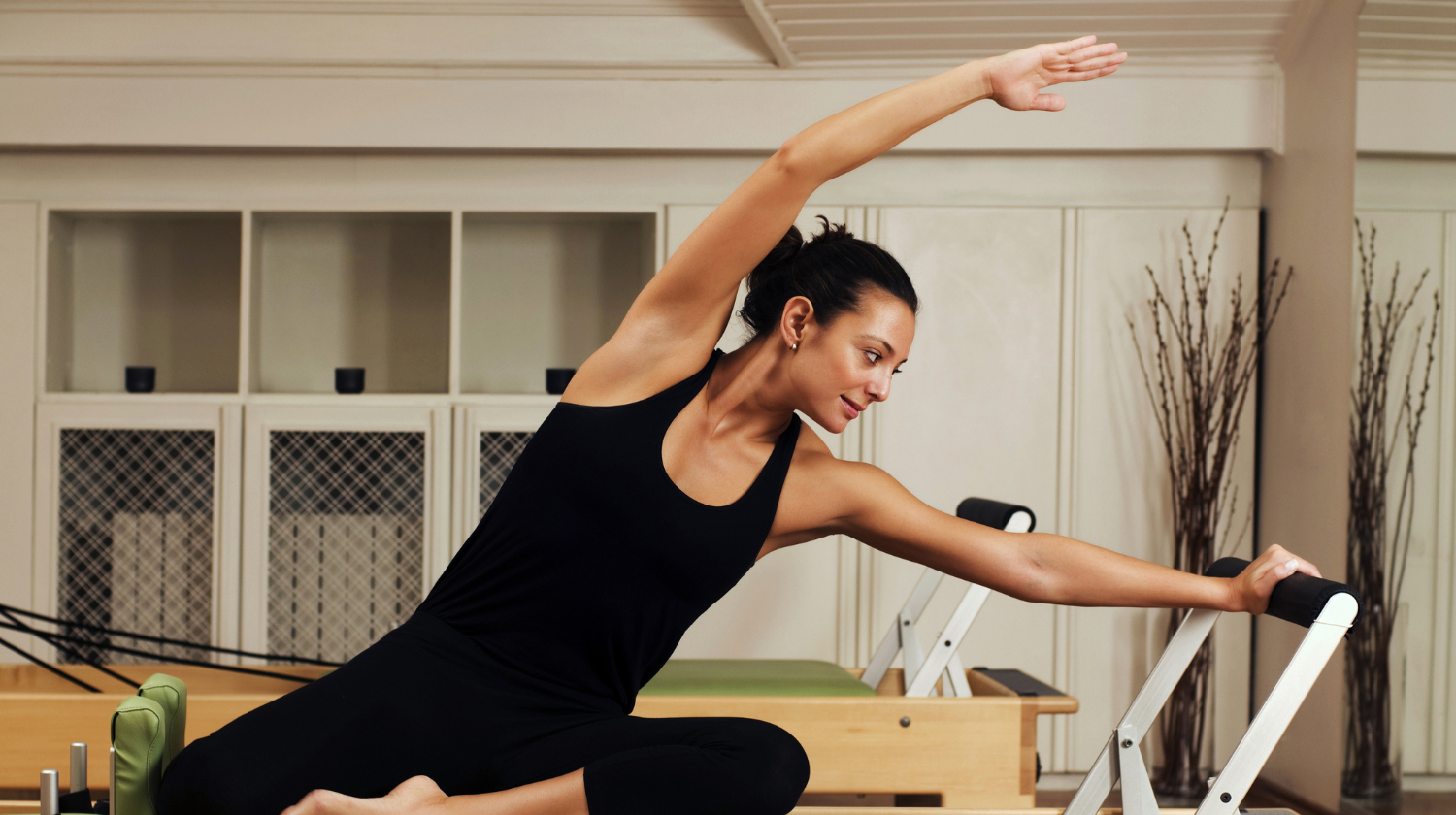How To Improve Hearing 2024: 6 Effective Ways To Hear Better

According to the World Health Organization, over 430 million people worldwide[1] have hearing loss. By 2050, that number is expected to reach 2.5 billion for a problem that is treatable by healthy habits and seeing a health professional.
It also estimates that around 1 billion young adults are at risk of permanent hearing loss due to unsafe listening practices. That means that this staggering number is entirely preventable through healthy habits and precautions.
Fortunately, even if you already have some degree of hearing loss, you can still take action toward improving it. Read on to learn how to improve hearing loss with six steps you can take action on today.
How To Improve Your Hearing
By 2050, 2.5 billion people worldwide will struggle with their hearing. Fortunately, hearing loss can be avoided or improved with healthy habits and professional treatment.
The six methods to improve hearing include:
- Use hearing aids or cochlear implants.
- Protect your ears from loud noises.
- Quit smoking.
- Exercise regularly.
- Eat a healthy diet.
- Reduce stress.
While certain types of hearing loss can be reversed, others are permanent. But no matter the type or degree of hearing loss, these steps can help improve your hearing.
Finally, schedule a hearing test with a hearing health professional if you have difficulty hearing others.
Can You Improve Your Hearing?
Hearing loss may be temporary and can often improve with time, healthy habits, and professional treatment.
In the case of conductive hearing loss,[2] it can often be improved after treatment if it’s due to earwax buildup, an infection, or if an inserted object causes some damage, as often happens with children.
Other types of hearing loss are often permanent and usually due to a structural issue or damage to the small ear bones and inner ear hair cells. Fortunately, a hearing aid or cochlear implant can drastically help to restore your quality of life.
Excitingly, even for those with permanent damage, scientists are diligently working towards solutions with stem cell research. While not yet available, there is evidence that stem cell-derived auditory neurons can re-establish broken connections.[3]
Types Of Hearing Loss
There are three main types of hearing loss:[4] conductive, sensorineural, and mixed.
- Conductive — sound waves can’t reach the inner ear. This may be due to a blockage, ear infection, deformity, or earwax buildup.
- Sensorineural — damage to the inner ear or auditory nerve disrupts sound function.
- Mixed — a combination of conductive and sensorineural hearing loss.
Sensorineural hearing loss is the most common type[5] and is usually due to age, loud noise exposure, injury, disease, or even genetics.
How To Improve Your Hearing
Here are six ways on how to improve hearing:
Use Hearing Aids Or Cochlear Implants

These devices can completely transform your daily life by restoring your hearing ability. They mostly work by amplifying sound and transmitting it to the inner ear.[6]
Hearing aids can be worn inside or behind the ear, with a variety of designs made for specific degrees and types of hearing loss. Some of the newer designs are barely noticeable and can even be made for people with little manual dexterity.
Cochlear implants[7] are small electronic devices that are surgically implanted into the inner ear. They’re most often used for people with severe hearing loss or deafness to provide a sense of sound.
Protect Your Ears From Loud Noises

Exposure to loud noises[8] is one of the biggest factors leading to hearing loss. Loud noise can damage cells and membranes in the cochlea, even if it’s just a one-time exposure to an extremely loud sound. Listening to loud noises for long periods of time can also overwork hair cells in the ear, causing them to die prematurely. Naturally, hearing loss progresses as exposure continues.
Wear hearing protection, like earplugs, for loud events like concerts, lawnmowers, or shooting practice. You can also invest in noise-canceling headphones for loud environments, such as an open office space.
Quit Smoking

Smoking has been linked to hearing loss,[9] even if it’s just passive smoking. It’s especially evident in older adults, where the effects of smoking have built up over time.
Cigarette chemicals can damage[10] the eustachian tube and delicate mucosa and alter internal pressures. Also, smoking is a known toxin to microcirculation such that it can interfere with the supply of oxygen and nutrients. The hair cells in the inner ear convert sound waves into electrical signals for the brain to interpret as sound. But these little hair cells can’t work properly without a constant supply of oxygen and nutrients.
Smoking can also cause inflammation in the middle ear, which can cause irritation and fluid buildup, learning to blockages and further hearing loss.
Fortunately, quitting can help to prevent further damage[11] and benefit your hearing. Of course, that’s easier said than done, but there are many free resources[12] available to you if you’re ready to quit.
Exercise Regularly

Moving your body helps improve blood flow, including to the inner ear. In this way, exercise can directly work toward maintaining healthy hair cells.[13] Indirectly, it can also help to reduce stress, which also contributes to hearing loss via inflammation.
Eat A Healthy Diet

Eating foods rich in vitamins and minerals will impact every area of your health, including your hearing. Certain nutrients, like vitamins C, E, B9, and B12,[14] and omega-3 fatty acids,[15] are especially well known to help maintain healthy blood vessels and hair cells in the inner ear.
Instead of trying to go on a strict diet, which often ends in yo-yo dieting and stress,[16] focus on adding one nutrient-dense food to your day. Focusing on one small habit at a time[17] and changing your mindset toward healthy eating are going to offer you your best chance at long-term success.
Reduce Stress

Stress can lead to hearing loss in several ways. One is through the release of the stress hormone cortisol,[18] which can damage the delicate hair cells of the inner ear.
Another way is by constricting blood vessels, which happens when stressed, reducing blood flow to the inner ear. This is common in those with high blood pressure[19] or cardiovascular disease.[20] Without a steady supply of blood, oxygen, and nutrients, hair cells and other inner ear structures may become damaged.
Like every habit that works toward healthier lifestyles, take it slow to start. Try creating at least five non-negotiable minutes every day where you do something for yourself. That could mean a guided meditation, a quiet walk in the park, yoga, or breathing exercise.
Although five minutes might not seem like much, it’s the best place to start. Even 10 minutes in a natural green space[21] can reduce cortisol levels. Remember, your overall health affects your hearing.
When To See A Doctor
If you’ve noticed any of these signs and symptoms,[22] it’s time to see a hearing specialist:
- Hearing muffled sounds.
- Pain or tenderness in your ear.
- Flu-like stuffed-up ear sensations.
- Exhaustion or stress when listening.
- People sound like they’re always mumbling.
- Constantly asking people to repeat themselves.
- Listening to TV or other devices at a higher volume than normal.
You’ll likely take a hearing test[23] where your doctor will determine your type and degree of hearing loss.
The Takeaway
Hearing loss is one of the most common issues facing older adults and children. Fortunately, you can improve your hearing with healthy habits and professional treatment.
The first step on how to hear better is to schedule a hearing test with your hearing healthcare professional. They’ll treat hearing loss depending on the cause, such as with antibiotics for an ear infection, removing earwax buildup, or recommending a specific type of hearing aid.
The best way to improve your hearing health includes exercising, practicing stress-relieving activities, quitting smoking, and eating nutrient-dense foods. Even if it’s age-related hearing loss, these healthy habits can help.
Finally, while admitting hearing loss isn’t easy, the good news is that hearing aids are barely visible anymore, and your quality of life can massively improve once you get one if needed. Just think, you or your friends and family will no longer feel frustrated whenever you try to have a conversation or watch TV.
+ 23 sources
Health Canal avoids using tertiary references. We have strict sourcing guidelines and rely on peer-reviewed studies, academic researches from medical associations and institutions. To ensure the accuracy of articles in Health Canal, you can read more about the editorial process here
- World (2023). Deafness and hearing loss. [online] Who.int. Available at: https://www.who.int/news-room/fact-sheets/detail/deafness-and-hearing-loss.
- Cunningham, L.L. and Tucci, D.L. (2017). Hearing Loss in Adults. New England Journal of Medicine, [online] 377(25), pp.2465–2473. doi:https://doi.org/10.1056/nejmra1616601.
- Harvard.edu. (2022). Hearing Loss. [online] Available at: https://hsci.harvard.edu/hearing-loss-0.
- Asha.org. (2023). Types of Hearing Loss. [online] Available at: https://www.asha.org/public/hearing/types-of-hearing-loss/.
- Hopkinsmedicine.org. (2022). Types of Hearing Loss. [online] Available at: https://www.hopkinsmedicine.org/health/conditions-and-diseases/hearing-loss/types-of-hearing-loss.
- Cleveland Clinic. (2022). Types of Hearing Aids: Styles & How They Work. [online] Available at: https://my.clevelandclinic.org/health/articles/5122-hearing-aid-styles.
- Cleveland Clinic. (2023). Cochlear Implants. [online] Available at: https://my.clevelandclinic.org/health/treatments/4806-cochlear-implants.
- Anon, (2023). How Does Loud Noise Cause Hearing Loss? [online] Available at: https://www.cdc.gov/nceh/hearing_loss/how_does_loud_noise_cause_hearing_loss.html.
- Dawes, P., Cruickshanks, K.J., Moore, D.R., Edmondson-Jones, M., McCormack, A., Fortnum, H. and Munro, K.J. (2014). Cigarette Smoking, Passive Smoking, Alcohol Consumption, and Hearing Loss. Journal of the Association for Research in Otolaryngology, [online] 15(4), pp.663–674. doi:https://doi.org/10.1007/s10162-014-0461-0.
- Demir, E. (2021). Effects of Smoking on the Auditory System: Is There a Gender Difference? – Emine Demir, Metin Celiker, Nazife Nur Afacan, Elif Aydogan, Gokce Aydin Balaban, Ozlem Celebi Erdivanli, Engin Dursun, 2021. [online] Ear, Nose & Throat Journal. Available at: https://journals.sagepub.com/doi/10.1177/0145561319872166.
- Garcia Morales, E.E., Ting, J., Gross, A.L., Betz, J.F., Jiang, K., Du, S., Power, M.C., Reed, N.S., Sharrett, A.R., Lin, F.R. and Deal, J.A. (2022). Association of Cigarette Smoking Patterns Over 30 Years With Audiometric Hearing Impairment and Speech-in-Noise Perception. JAMA Otolaryngology–Head & Neck Surgery, [online] 148(3), p.243. doi:https://doi.org/10.1001/jamaoto.2021.3982.
- Smokefree.gov. (2023). Home | Smokefree. [online] Available at: https://smokefree.gov/.
- Chen, D.S., Betz, J., Yaffe, K., Ayonayon, H.N., Kritchevsky, S., Martin, K.R., Harris, T.B., Purchase-Helzner, E., Satterfield, S., Xue, Q.-L., Pratt, S., Simonsick, E.M. and Lin, F.R. (2014). Association of Hearing Impairment with Declines in Physical Functioning and the Risk of Disability in Older Adults. The Journals of Gerontology Series A: Biological Sciences and Medical Sciences, [online] 70(5), pp.654–661. doi:https://doi.org/10.1093/gerona/glu207.
- Jung, S., Kim, S. and Yeo, S. (2019). Association of Nutritional Factors with Hearing Loss. Nutrients, [online] 11(2), p.307. doi:https://doi.org/10.3390/nu11020307.
- Curhan, S.G., Eavey, R.D., Wang, M., Rimm, E.B. and Curhan, G.C. (2014). Fish and fatty acid consumption and the risk of hearing loss in women,,. The American Journal of Clinical Nutrition, [online] 100(5), pp.1371–1377. doi:https://doi.org/10.3945/ajcn.114.091819.
- Memon, A.N., Gowda, A.S., Rallabhandi, B., Bidika, E., Fayyaz, H., Salib, M. and Cancarevic, I. (2020). Have Our Attempts to Curb Obesity Done More Harm Than Good? Cureus. [online] doi:https://doi.org/10.7759/cureus.10275.
- Dalton, A.N. and Spiller, S. (2012). Too Much of a Good Thing: The Benefits of Implementation Intentions Depend on the Number of Goals. [online] ResearchGate. Available at: https://www.researchgate.net/publication/228439252_Too_Much_of_a_Good_Thing_The_Benefits_of_Implementation_Intentions_Depend_on_the_Number_of_Goals.
- Wagner-Hartl, V. and Kallus, K.W. (2018). Investigation of Psychophysiological and Subjective Effects of Long Working Hours – Do Age and Hearing Impairment Matter? Frontiers in Psychology, [online] 8. doi:https://doi.org/10.3389/fpsyg.2017.02167.
- Ramatsoma, H. and Patrick, S.M. (2022). Hypertension Associated With Hearing Loss and Tinnitus Among Hypertensive Adults at a Tertiary Hospital in South Africa. Frontiers in Neurology, [online] 13. doi:https://doi.org/10.3389/fneur.2022.857600.
- The (2022). Heart Disease and Hearing Loss – The American Academy of Audiology. [online] The American Academy of Audiology. Available at: https://www.audiology.org/consumers-and-patients/hearing-and-balance/heart-disease-and-hearing-loss/#2.
- ScienceDaily. (n.d.). Spending time in nature reduces stress. [online] Available at: https://www.sciencedaily.com/releases/2020/02/200225164210.htm.
- NHS Choices (2023). Hearing loss. [online] Available at: https://www.nhs.uk/conditions/hearing-loss/.
- Mayoclinic.org. (2023). Hearing loss – Diagnosis and treatment – Mayo Clinic. [online] Available at: https://www.mayoclinic.org/diseases-conditions/hearing-loss/diagnosis-treatment/drc-20373077.



